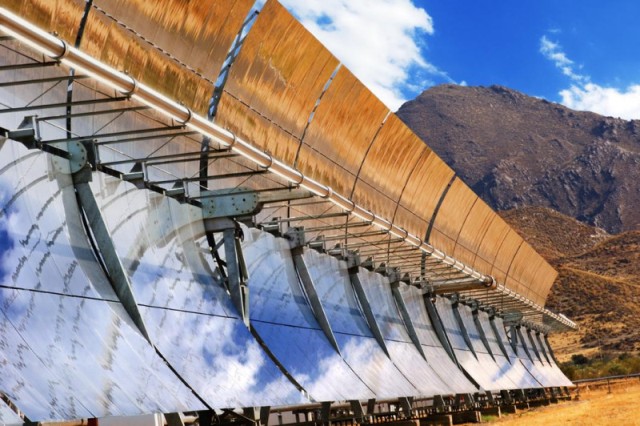By Patrick Conroy and Mark Venables
Supply unreliability is a concern holding back economic development, with most countries facing frequent blackouts
MON 11 APRIL, 2022-theGBJournal | There is a saying; ‘oil and water don’t mix’. While that may be true on a meta-physical level, it isn’t true when it comes to Africa’s energy needs.
With the population of the continent expected to double by 2100 this creates a daunting energy challenge, combined with rising expectations of improved resilience and sustainability. Finding a sustainable way to meet growing energy needs is one of the core development challenges.
While Africa is rich in renewable energy sources it must also lift nearly half-a-billion people out of poverty according to the United Nations (bit.ly/3KopdPH). These, and other challenges will come under the spotlight when heads of state, business leaders, energy experts and investors meet at African Oil Week and the Green Energy Africa Summit (https://Africa-OilWeek.com) in Cape Town, October 3rd – 7th this year.
Here decisions on the right energy mix will have far reaching consequences. Endowed with both hydrocarbons and substantial renewable energy resources, Africa can adopt innovative, sustainable technologies and play a leading role in global action to shape a sustainable energy future. In addition to AOW the Green Energy Africa Summit will take place at the same time and same venue.
“As organisers of the event we realise that Africa needs energy solutions which vary from traditional oil and gas to renewables” says Paul Sinclair, VP for Energy at AOW.
“We want delegates to be able to engage on a 360-degree basis and explore the best opportunities for their markets” he says.
Supporting a renewable future for Africa
Renewables provide the chance for Africa to leapfrog to a sustainable, prosperous future. Increasing access to reliable, affordable, and clean energy resources is a key priority, particularly in Sub-Saharan Africa. Around 600 million people in Africa still have no access to power, representing 48 per cent of the continent’s population of nearly 1.2 billion. Accelerated deployment of renewables creates jobs and brings health benefits. The renewable energy sector today employs 10.3 million people worldwide.
With far-sighted industrial policies and targeted skills development, millions of new jobs can be created in Africa. Doubling the share of renewables by 2030 would create additional economic value by increasing global gross domestic product by up to 1.1 per cent. This would signify a 3.7 per cent improvement in global welfare and jobs for over 24 million people in the renewable energy sector. This would enable further economic benefits such as improved healthcare services, especially in the most remote areas.
Supply unreliability is a concern holding back economic development, with most countries facing frequent blackouts.
According to the ‘Scaling Up Renewable Energy Deployment in Africa’ report from the International Renewable Energy Agency (IRENA), Africa could meet nearly a quarter of its energy needs from indigenous and clean renewable energy by 2030. Modern renewables amounting to 310 GW could provide half the continent’s total electricity generation capacity. This corresponds to a sevenfold increase from the capacity currently available, which amounted to 42 GW.
A transformation of this scale in Africa’s energy sector would require an average annual investment of $70 billion to 2030, resulting in carbon-dioxide emissions reductions of up to 310 mega tonnes per annum.
Meanwhile hydrocarbons will continue to supply the remainder of Africa’s energy needs until such a time that green energy forms the basis of the continent’s power demands. Of course, carbon-based fuels are increasingly undesirable. However, it must be remembered that Africa produces less than 3.8% of the planet’s greenhouse gases. When it comes to climate change Africa has the smallest footprint globally.
According to the late global health expert and statistician, Hans Rosling, the richest billion people contribute to over half of all CO2 emissions (https://bit.ly/3KwNd30). This puts the responsibility for reduced carbon emissions squarely in the court of developed countries.
Signs of Hope
In West Africa the new Regional Electricity Access and Battery-Energy Storage Technologies (BEST) Project, supported with $465 million from the World Bank Group, will increase grid connections in fragile areas of the Sahel, build the capacity of the Economic Community of West Africa States (ECOWAS) Regional Electricity Regulatory Authority (ERERA), and strengthen the West Africa Power Pool’s (WAPP) network operation with battery-energy storage technologies infrastructure. This is a pioneering move that makes way for increased renewable energy generation, transmission, and investment across the region.
Over the past decade, the World Bank has financed close to $2.3 billion of investments in infrastructure and reforms in support of WAPP, considered the key to achieving universal access to electricity by 2030 in the 15 ECOWAS countries. This new project builds on progress and will finance civil works to accelerate access in Mauritania, Niger, and Senegal.
Last year the World Bank approved a $500 million International Development Association (IDA) credit to support Ethiopia’s goal of achieving universal electricity access by 2025. Over the past decade, the Government of Ethiopia has made encouraging progress on its electrification program and expanded the grid network coverage to nearly 60 per cent of towns and villages.
Despite this progress, Ethiopia has the third largest energy access deficit in Sub-Saharan Africa with more than half the population still without access to reliable electricity, especially in deep-rural areas which are dependent on biomass and kerosene. The electricity deficit in Ethiopia continues to exacerbate the poverty situation, preventing far too many people from fulfilling their basic socio-economic needs and limiting access to opportunity.
Conclusion
Africa cannot follow the same energy path as the developed world, nor can it afford to ignore its natural energy resources in favour of green energy solutions if it is to meet its economic and social upliftment goals.
As the lowest contributor to climate change Africa must be given the latitude to develop a just and equitable energy mix of hydrocarbons and renewables to achieve economic growth, reduce child mortality and improve social upliftment in her nation states.
Twitter-@theGBJournal|Facebook-The Government and Business Journal|email: gbj@govbusinessjournal.ng|govandbusinessj@gmail.com










